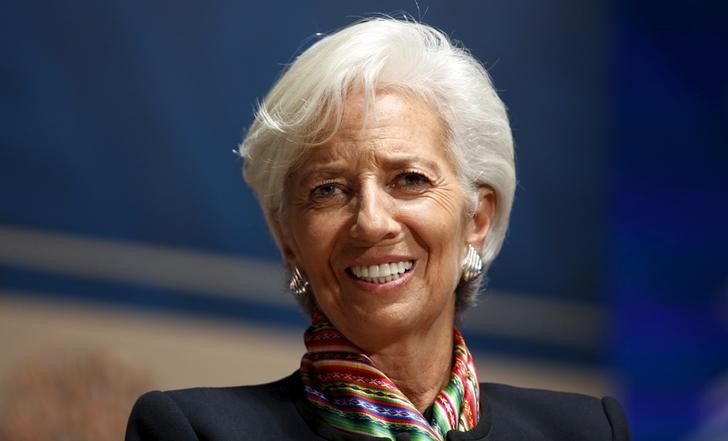By Geoffrey Smith
Investing.com -- The dollar fell again in morning trade in Europe after European Central Bank President Christine Lagarde chose not to rule out a 50 basis point interest rate hike at the bank's July meeting.
By 3:30 AM ET (0730 GMT), the euro traded up 0.3% at $1.0724, its highest level in nearly a month. The dollar index, in which the EUR/USD rate has the biggest weighting, was down 0.2% at 101.86.
The greenback has lost its momentum in recent days since the ECB shifted more clearly to signaling what would be its first interest rate hike in a decade at its July meeting, narrowing the distance in policy terms between it and the Federal Reserve.
Lagarde had published a blog on the ECB's website on Monday, saying that the ECB would be out of negative interest rate territory by the end of the third quarter. While that confirmed a shift toward tightening, the euro had weakened later in the day on perceptions that the timeframe was chosen in order to rule out a 50 basis point hike already in July, which the ECB's more hawkish policymakers say is necessary.
Talking to Bloomberg on the sidelines of the World Economic Forum in Davos, Lagarde pushed back against such suggestions, saying that nothing was off the table, but repeated that the ECB's moves should be gradual.
The ECB's deposit rate currently stands at -0.5%, while its refinancing rate stands at 0%. In the current environment of high excess liquidity, it is the deposit rate that effectively sets a lower bound for market interest rates.
Lagarde was speaking just before the publication of the first of the preliminary purchasing managers indices for May from S&P Global. Both the manufacturing and services PMIs for France came in a little below expectations, but nonetheless, both stayed clearly in the territory signaling growth. Germany's manufacturing PMI surprisingly managed its first gain in three months.
More broadly, the market tone has shifted back to risk-off after a reassessment of China's fiscal stimulus announcement on Monday. While markets welcomed the idea of over $20 billion worth of tax rebates for corporates, the overall volume was disappointing for many and still offered no convincing way out of the growth trap created by Beijing's 'Zero Covid' strategy.
The offshore yuan fell 0.4% to 6.6857, after rising sharply in response to Monday's news.
Elsewhere, the Turkish lira weakened above 16 to the dollar for the first time this year amid ongoing fears about rampant inflation. The country is a big net importer of energy and consequently highly exposed to the leap in oil and gas prices this year. By contrast, the tightly-managed Russian ruble rate continued to go from strength to strength, hitting another four-year high of 56.91 against the dollar.
